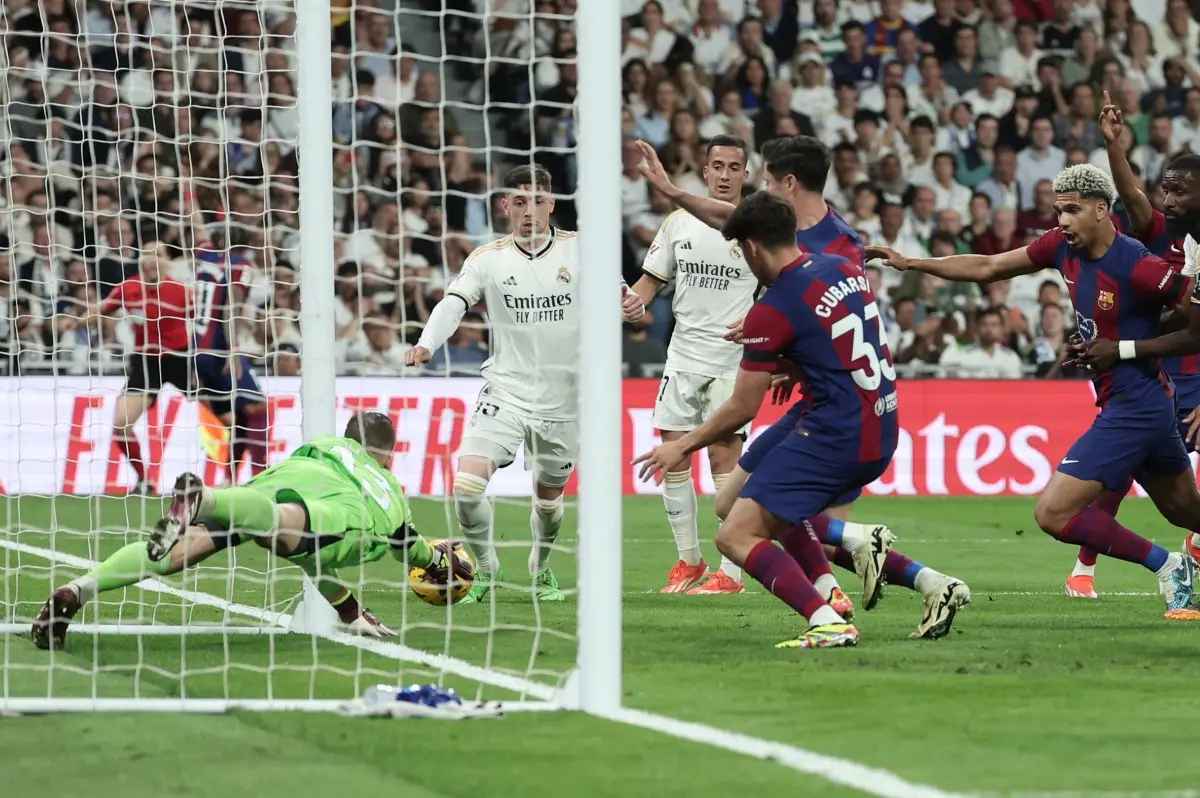Explore the controversy surrounding Barcelona’s disallowed goal in El Clasico and the push for La Liga to introduce goal-line technology. Learn about the league’s historical resistance, its impact on modern refereeing, and the call for change in Spanish football.
Barcelona’s Disallowed Goal: A Wake-Up Call for La Liga
Joan Laporta’s recent outcry following Barcelona’s denied goal in El Clasico spotlighted a longstanding issue in Spanish football: the absence of goal-line technology. While Laporta’s call for a replay may seem impractical, the incident underscores the pressing need for La Liga to embrace technological advancements to ensure fair play and accurate officiating.
Lack of Goal-Line Technology: A Puzzling Oversight
The contentious moment arose when Lamine Yamal’s deft flick appeared to cross the goal line before being cleared by Real Madrid’s goalkeeper. However, without goal-line technology, the decision fell to VAR, which failed to conclusively determine if the ball had crossed the line. The incident reignited debate surrounding La Liga’s reluctance to adopt goal-line technology, a standard feature in other top football leagues.
Historical Context: Spain’s Resistance to Change
Despite the widespread adoption of goal-line technology across Europe, La Liga President Javier Tebas has staunchly resisted its implementation, citing cost concerns. Tebas’s stance contrasts with his eventual acceptance of VAR, highlighting the inconsistency in embracing technological advancements within Spanish football.
Impact of the ‘Ghost Goal’ Incident
Yamal’s ‘ghost goal’ incident is not an isolated case, as previous seasons have witnessed similar controversies due to the absence of goal-line technology. Celta Vigo and Real Sociedad are among the clubs that have suffered from disputed goal decisions, emphasizing the need for decisive action from La Liga.
Tebas’ Opposition to Change
Tebas’s opposition to goal-line technology stems from financial considerations and skepticism regarding its effectiveness. Despite occasional acknowledgments of VAR’s shortcomings, Tebas remains steadfast in his resistance to implementing goal-line technology, perpetuating the league’s outdated approach to officiating.
Modern Football’s Refereeing Dynamics
The introduction of VAR has transformed the dynamics of refereeing and club interactions, leading to increased scrutiny and public criticism of officiating decisions. Clubs, including Barcelona, have leveraged VAR controversies to challenge match outcomes, reflecting a broader shift in accountability and transparency within football governance.
The Path Forward: Embracing Technological Progress
While Laporta’s call for a replay may lack practicality, his criticism serves as a catalyst for change within La Liga. The league must prioritize the adoption of goal-line technology to uphold fairness and integrity in matches, aligning with the standards set by other European leagues.
In conclusion, the ‘ghost goal’ controversy in El Clasico underscores the imperative for La Liga to modernize its officiating protocols. By embracing goal-line technology, the league can mitigate contentious decisions and enhance the credibility of Spanish football on the global stage.
